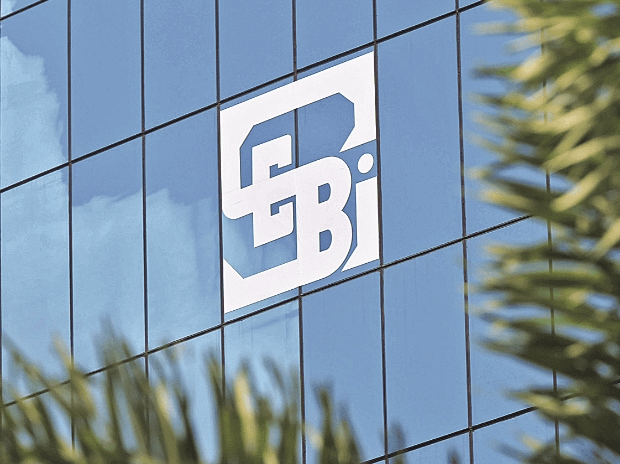This article is written by Sharad Yadav from the Institute of Law, Nirma University. This article talks about the benefits which are given to the employee’s family, if the employee had died due to covid or any other reason.
Table of Contents
Introduction
We all are aware that the World Health Organization (WHO), on March 11, 2020, had formally declared the novel coronavirus (Covid-19) outbreak as a global pandemic. We have seen many people get infected, and many of them even died due to coronavirus. Amidst this critical situation now, companies are facing difficulty in managing and running their business smoothly. Many of the company’s employees died during this pandemic, and many people lost their loved ones. To help, the government has come up with a certain type of scheme to provide assistance to those families financially.
Power of SEBI
- Quasi-Judicia l – SEBI has the authority to deliver judgments related to frauds and any unethical practices in terms of the securities market. It helps in ensuring fairness, and transparency.
- Quasi-Executive – SEBI has the power to implement the regulation and judgments made and can take any legal action against the violators. It also has the authorized power to inspect the books of accounts and any other documents.
- Quasi-Legislative – SEBI has the power to frame rules and regulations to protect the interest of investors. Some of the rules like inside trading, listing obligations, and disclosure requirements are formulated to keep the malpractices at bay.
Relief to the families
In view of the Covid pandemic situation in India Security and Exchange Board Of India (SEBI) decided to provide relief to the families of the deceased employee who worked in the listed companies. SEBI said that the provisions of Share Based Employee Benefit Regulation, 2014 (SBEB) relating to a minimum vesting period of one year would not be going to be applied in case of death.
In such a case cause of death is not necessarily be Covid. All the employee stock options, stock appreciation rights, or any other benefits granted to the employee will be given to the legal heir or nominee on the employee’s date of death. This SEBI regulation will only be available to all employees who have passed away on or after 1 April 2020.
According to SEBI Regulations, 18(1) and 24(1) provide that there will be a minimum vesting period of one year in case of employee stock options and Stock Appreciation Rights(SAR). A Stock Appreciation Right (SAR) refers to the right to be paid compensation which is equivalent to an increase in the company’s common stock price over a base or the value of appreciation of the equity shares currently being traded on the public market.
Further, Regulation 9(4) of the SBEB Regulations stated that in case of death of any employee all the options, SAR, and if there are any other benefits granted to him/her under a scheme, then it will be transferred to the legal heirs or nominees of the deceased employee.
Employee Deposit Linked Insurance (EDLI) scheme
If someone who is an active employee of the company passed away due to Covid-19, his/her legal heirs are eligible for money up to 7 lakh under the scheme of Employee Deposit Linked Insurance(EDLI). It is an insurance cover provided by the EPFO for salaried employees from the private sector. Nominees of the employer get the lump sum payment in case of any unfortunate event of the said person’s death during the service.
To help private-sector employees affected by the COVID, Employees Provident Fund Organisation (EPFO) on 28 April 2021 issued a notification for raising the benefit under this scheme from 6 lakh to 7 lakh for the subscriber of its EDLI scheme. Earlier also in the year 2015, the benefit was raised from 3.6 lakh to 6 lakh.
The notification, issued in April, stated that the provision which was inserted would have effect from 15th February 2020, and the benefit will not be less than two lakh and fifty thousand. If any organization has more than twenty employees, then they need to register for EPF. Therefore, any employee who has an EPF account automatically becomes eligible for the EDLI scheme.
To claim the insurance under this, the only condition is that the EPF account holder should have died when he was still employed, i.e., before the retirement, the deceased person should have been the active contributor to the EPF scheme of their death.
It’s not going to be matter whether the employee died on leave or while having a vacation or while at work, regardless of how and when he died, the nominee can claim the money for claiming this nominee has to submit the details like death certificate, succession certificate, a cancelled cheque of a bank where they wish to receive the money, and bank details. If the employee who died does not have any nominee, the legal heir can claim this amount.
Who is covered under ESIC and EPFO
Employees State Insurance Act, 1948 applies to all the factories and notified establishments located in the implemented area employing ten or more people and will be applicable on the employee drawing wages up to 21,000 per month and in case of disability, the said amount is 25,000. It covers almost 3.49 crore of family units of workers and provides case and medical facilities to 13.56 cr beneficiaries.
Pension scheme for a deceased government employee
The Union government has written to all the ministries for distributing the pension to all the families of government employees. The authorities have been asking to disburse the pension to the families as soon as they receive the claim with a corona death certificate. It’s going to be a win-win situation for the families having urgent need of funds for livelihood.
Rule 80-A of the Central Civil Service(Pension)Rules,1972 which provide for the payment of provisional family pension and provisional death gratuity, pending Pension Payment Order(PPO). All the ministries have been asked to strictly comply with the order for sanctioning the provisional family pension by the Head of Office immediately after he received the claim along with a death certificate for the eligible family members without waiting for the forwarding of the case to the Pay Account Office(PAO).
It was ordered that it must ensure that PPO for family pension is issued and disbursed of regular pension is commenced by the bank not later than one month after the receipt of claim application for family pension. To expedite the process of disbursement of the pension to the family members, two separate reckons were sent to all the ministries to calculate the pension and another benefit of the employee under the Old Pension Scheme and National Pension System.
Various challenges for the companies
- Many sectors are badly hit by the covid pandemic, such as manufacturing, mining, textile, power generation, etc. Manpower in the industries is unavailable, and transportation is disrupted, but they have to pay wages to the employee and workers from their reserve.
- Another challenge that companies face during a pandemic is conducting the meeting, such as board meeting, annual general meeting, extraordinary general meetings or meetings, necessary for an instrument of decision making.
- Amid this extraordinary situation, many companies cannot hold an extraordinary meeting or face delays in a meeting where a passing meeting is a requirement of shareholder’s approval for passing any resolution. This delay is leading to non-compliance and inviting penalties to the companies.
- Companies are now shifting to the digital mode for conducting conferences and other things leading to exposure to cyber threats for companies, such as leaking of sensitive information. When many of the employees are doing work from home, they might be using unprotected personal networks, which open up the organization to completely different levels of fraud and cyber-risks.
Relaxation of norms for companies by SEBI
- There are benefits given to the companies by the SEBI, like the extension of the deadline given to the companies for filling financial results for the quarter and the financial year ended March 31 to June 30. SEBI allowed the listed companies to use digital signature certificates made to stock exchanges for filling or submissions made to stock exchanges under its listing obligations and disclosure requirements regulations,2015 for all the filling until December 31, 2021.
- To cope with the liquidity crisis created by the pandemic, SEBI has eased the capital raising for the companies listed. Markers regulators have amended the takeover code to allow the promoters to acquire up to ten per cent in a financial year without triggering a penned offer, but this can only be done by issuing preferential issues of equity shares.
In other words, we can say that promoters will have to infuse fresh capital into their company and not just simply acquire shares from the secondary market. Now SEBI has incentivised the promoter to do a preferential allotment of large size then take the benefit of increasing creeping acquisition limit.
SEBI has chosen this to give incentive to the promoters coming at higher prices and companies to receive more significant amounts from promoters should the need arise.
- On March 25 of this year, SEBI approved certain amendments to the delisting regulation by fixing the timelines, allowing acquirers to provide indicative price, and detailing the role of a merchant banker in the delisting process.
Delisting of the company listed or “take-privates” as delistings are well known globally has met with limited success in India mainly due to stringent pricing rules under the Delisting Regulations. In delisting offers, price discovery is left with the public shareholders. Reverse book building allows the public shareholders to tender their share at a price of their choice above a certain level of floor price. The price at which the acquirer is able to cross 90 per cent of the share capital of the company becomes the final delisting price. It is for the acquirer to accept then or reject this so-called discovered price.
Conclusion
In this pandemic, many people lost their loved ones. Government or any other organizations can not help bring back those persons but can provide financial help to the families. These financial cover might seem to be small, but they can help those who need money urgently. Government should increase the amount of insurance cover a little more so that their family members who have urgent needs of money do not suffer. SEBI helped to some extent in such a time of pandemic situation, especially to the families with urgent needs of money.
References
- https://www.business-standard.com/article/markets/covid-19-impact-sebi-relaxes-capital-raising-norms-for-listed-companies-120061701284_1.html
- https://economictimes.indiatimes.com/small-biz/legal/delisting-regulations-time-to-ease-take-private-rules-for-corporate-india-/articleshow/82650919.cms?from=mdr
LawSikho has created a telegram group for exchanging legal knowledge, referrals, and various opportunities. You can click on this link and join:
https://t.me/joinchat/J_0YrBa4IBSHdpuTfQO_sA
Follow us on Instagram and subscribe to our YouTube channel for more amazing legal content.
 Serato DJ Crack 2025Serato DJ PRO Crack
Serato DJ Crack 2025Serato DJ PRO Crack










 Allow notifications
Allow notifications


